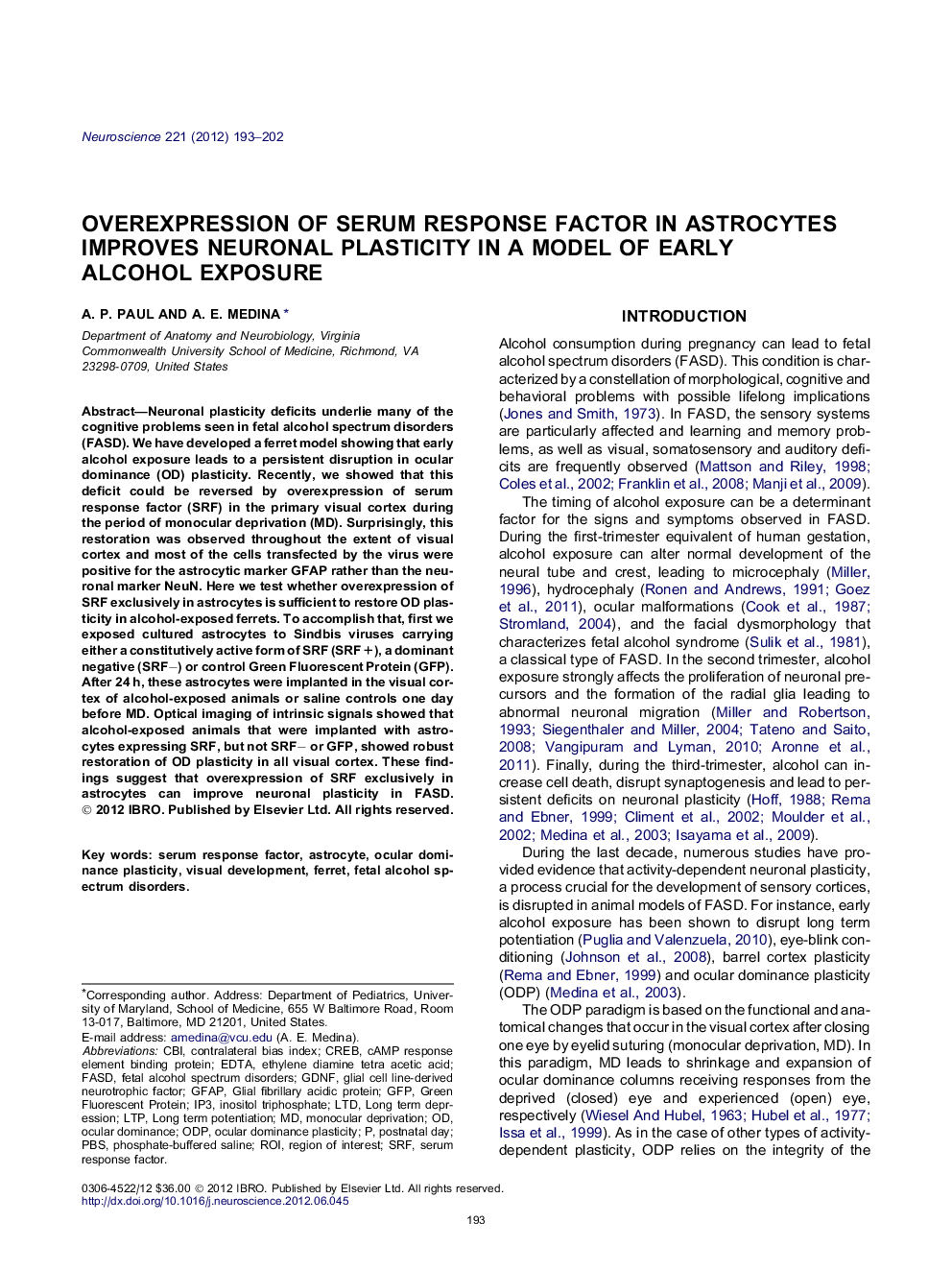| Article ID | Journal | Published Year | Pages | File Type |
|---|---|---|---|---|
| 4338316 | Neuroscience | 2012 | 10 Pages |
Neuronal plasticity deficits underlie many of the cognitive problems seen in fetal alcohol spectrum disorders (FASD). We have developed a ferret model showing that early alcohol exposure leads to a persistent disruption in ocular dominance (OD) plasticity. Recently, we showed that this deficit could be reversed by overexpression of serum response factor (SRF) in the primary visual cortex during the period of monocular deprivation (MD). Surprisingly, this restoration was observed throughout the extent of visual cortex and most of the cells transfected by the virus were positive for the astrocytic marker GFAP rather than the neuronal marker NeuN. Here we test whether overexpression of SRF exclusively in astrocytes is sufficient to restore OD plasticity in alcohol-exposed ferrets. To accomplish that, first we exposed cultured astrocytes to Sindbis viruses carrying either a constitutively active form of SRF (SRF+), a dominant negative (SRF−) or control Green Fluorescent Protein (GFP). After 24 h, these astrocytes were implanted in the visual cortex of alcohol-exposed animals or saline controls one day before MD. Optical imaging of intrinsic signals showed that alcohol-exposed animals that were implanted with astrocytes expressing SRF, but not SRF− or GFP, showed robust restoration of OD plasticity in all visual cortex. These findings suggest that overexpression of SRF exclusively in astrocytes can improve neuronal plasticity in FASD.
► Early alcohol exposure leads to a long lasting impairment of neuronal plasticity. ► Implantation of cultured astrocytes overexpressing SRF restored neuronal plasticity. ► Restoration of neuronal plasticity occurred in all visual cortex. ► SRF-related molecules produced by astrocytes can improve plasticity in neurons.
